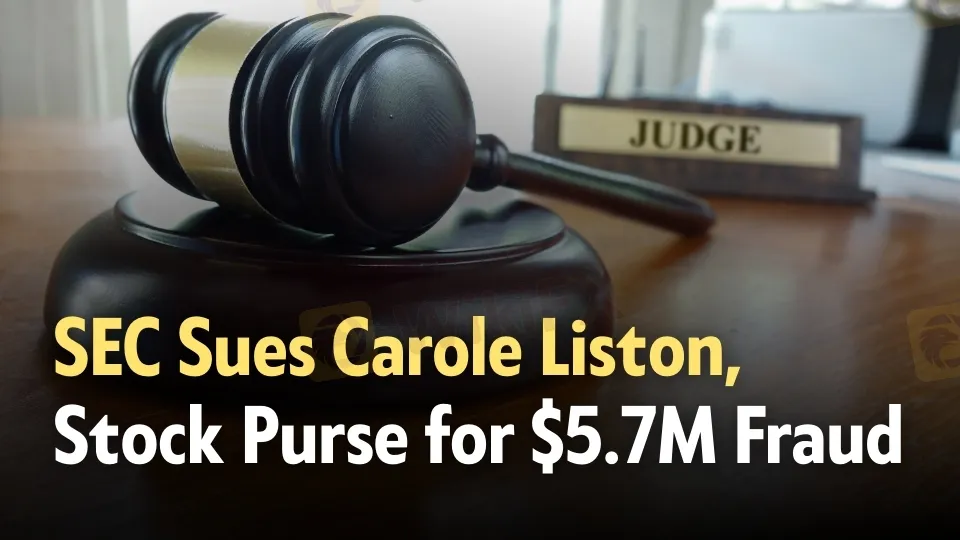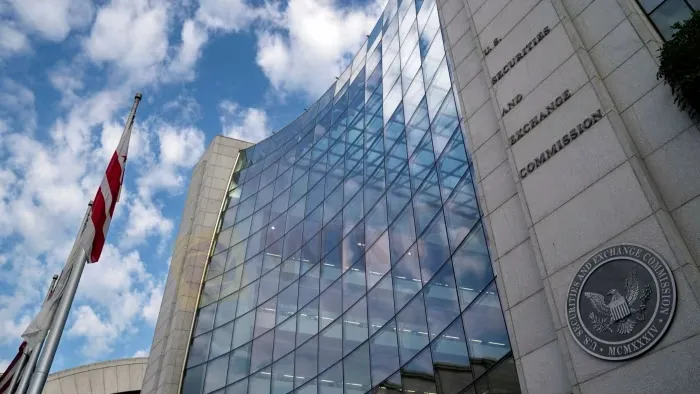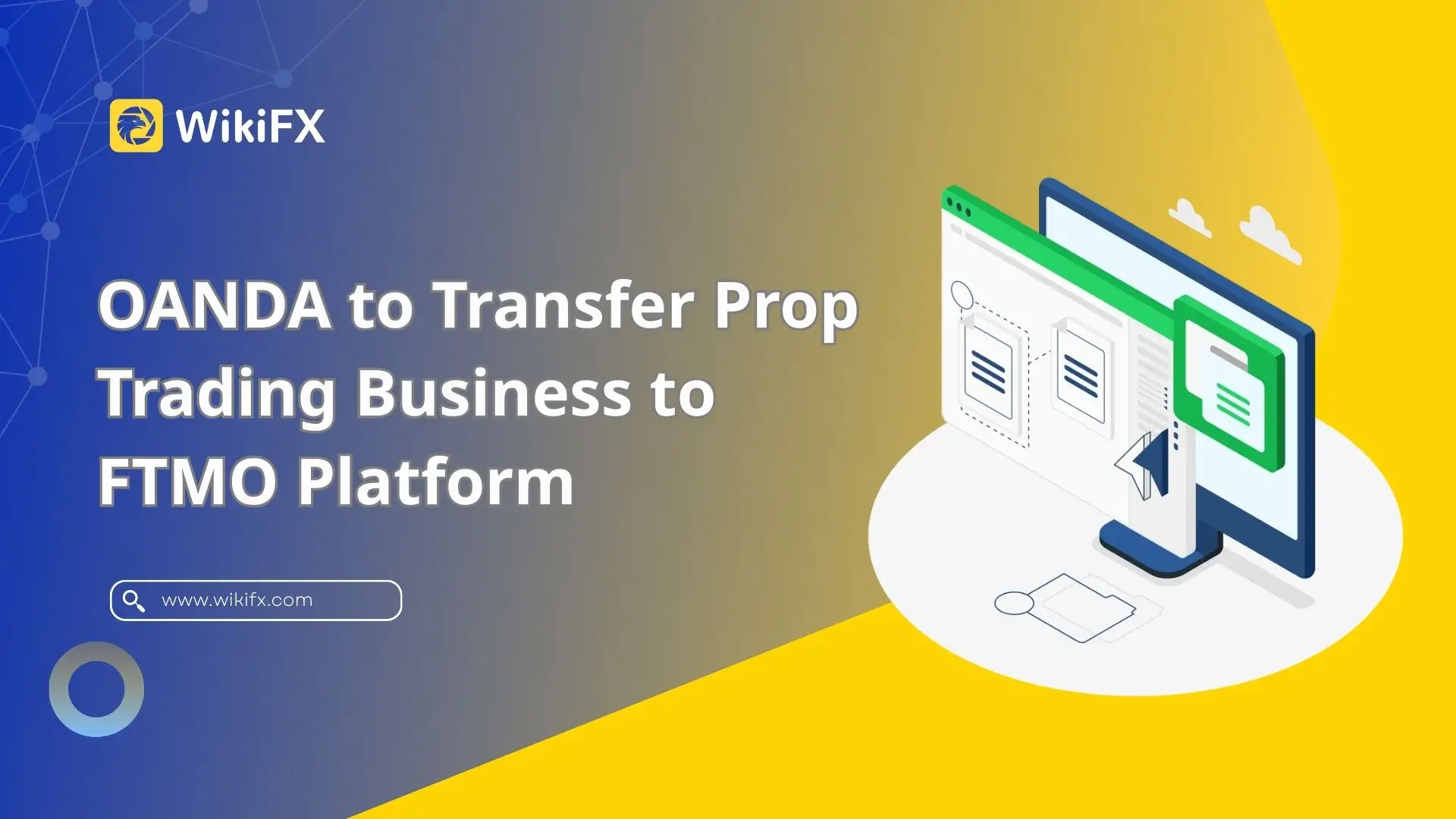OANDA to Transfer Prop Trading Business to FTMO Platform
After FTMO’s acquisition of OANDA, the transfer of the OANDA Prop Trader service to the FTMO platform begins.
简体中文
繁體中文
English
Pусский
日本語
ภาษาไทย
Tiếng Việt
Bahasa Indonesia
Español
हिन्दी
Filippiiniläinen
Français
Deutsch
Português
Türkçe
한국어
العربية
Abstract:SEC files lawsuit against Carole Liston and Stock Purse Trading for allegedly running a Ponzi-like scheme, misusing $5.7M from 200+ investors nationwide.

The U.S. Securities and Exchange Commission (SEC) has launched a high-profile lawsuit against Stock Purse Trading, LLC, Liston Associates, Inc., and their owner, Carole Liston, alleging a multi-million dollar fraudulent securities offering with Ponzi-like characteristics. The complaint, filed in the U.S. District Court for the Southern District of Florida on August 18, 2025, marks one of the most significant investment fraud cases in the region this year.
According to the SECs detailed complaint, from August 2020 through July 2024, Liston and her companies raised approximately $5.7 million from more than 200 investors across the United States. Investors were enticed with claims of extraordinary monthly returns—ranging from 5% to 20%—with Liston allegedly promising to double their money in just 30 to 60 days. She even boasted of achieving 350% annual profits through her proprietary trading algorithm and pooled investment strategy.
Listons marketing materials emphasized her supposed expertise in options trading and short selling, presenting herself as a seasoned professional with a track record of personal trading success. However, the SEC asserts these claims were largely fabricated, designed to create an air of Experience and Trustworthiness that would appeal to both novice and experienced investors searching for high-yield opportunities.

The SECs investigation found that only a small fraction of investor funds were actually used for trading activities. When Liston traded, her strategies resulted in significant losses rather than the promised gains. Meanwhile, she allegedly misappropriated at least $450,000 for personal expenses and used approximately $3.9 million to make “Ponzi-like” payments to earlier investors—a hallmark of fraudulent securities offerings and investment fraud.
Further compounding the deception, Liston allegedly provided investors with falsified online account summaries, showing consistently high returns that did not reflect the reality of their investments. These fabricated statements were accessible through Stock Purse Tradings website, misleading investors about the safety and security of their capital.
The SECs lawsuit accuses Liston and her companies of violating key federal securities laws, including Section 17(a) of the Securities Act of 1933, Section 10(b) of the Securities Exchange Act of 1934, and related rules. The complaint also cites violations of the Investment Advisers Act of 1940, emphasizing the severity of the alleged misconduct.
The SEC is seeking permanent injunctions to bar Liston and her firms from future securities offerings, as well as disgorgement of ill-gotten gains—plus interest—and civil penalties. This enforcement action underscores the agencys commitment to protecting investors and maintaining market integrity, especially in cases involving Ponzi-like investment schemes and misappropriation of investor funds.
This case is a stark reminder of the risks associated with high-return investment opportunities that seem too good to be true. It also highlights the importance of conducting thorough due diligence, verifying an adviser‘s credentials, and understanding the regulatory protections available to investors. The SEC’s swift action in this investment fraud case in Florida serves as a warning to both would-be fraudsters and the investing public.
Readers seeking more information about the Carole Liston SEC lawsuit details, Stock Purse Trading fraud case, or general guidance on avoiding investment scams are encouraged to consult official SEC resources and registered financial professionals.

Disclaimer:
The views in this article only represent the author's personal views, and do not constitute investment advice on this platform. This platform does not guarantee the accuracy, completeness and timeliness of the information in the article, and will not be liable for any loss caused by the use of or reliance on the information in the article.

After FTMO’s acquisition of OANDA, the transfer of the OANDA Prop Trader service to the FTMO platform begins.

Although no large-scale public complaints have yet surfaced, we have identified a coordinated cluster of suspicious investment platforms exhibiting strong characteristics of organized fraud operations.

Thai authorities have issued arrest warrants for South African businessman Benjamin Mauerberger and his wife over an alleged cross-border investment fraud and money laundering scheme that caused billions of baht in losses. The case has attracted major attention due to its reported links to political and business networks in Thailand and Cambodia, with the couple believed to have fled to Dubai while authorities continue investigating and freezing assets worth over 13 billion baht.

Invite friends and earn points, the more you invite, the more you earn!
